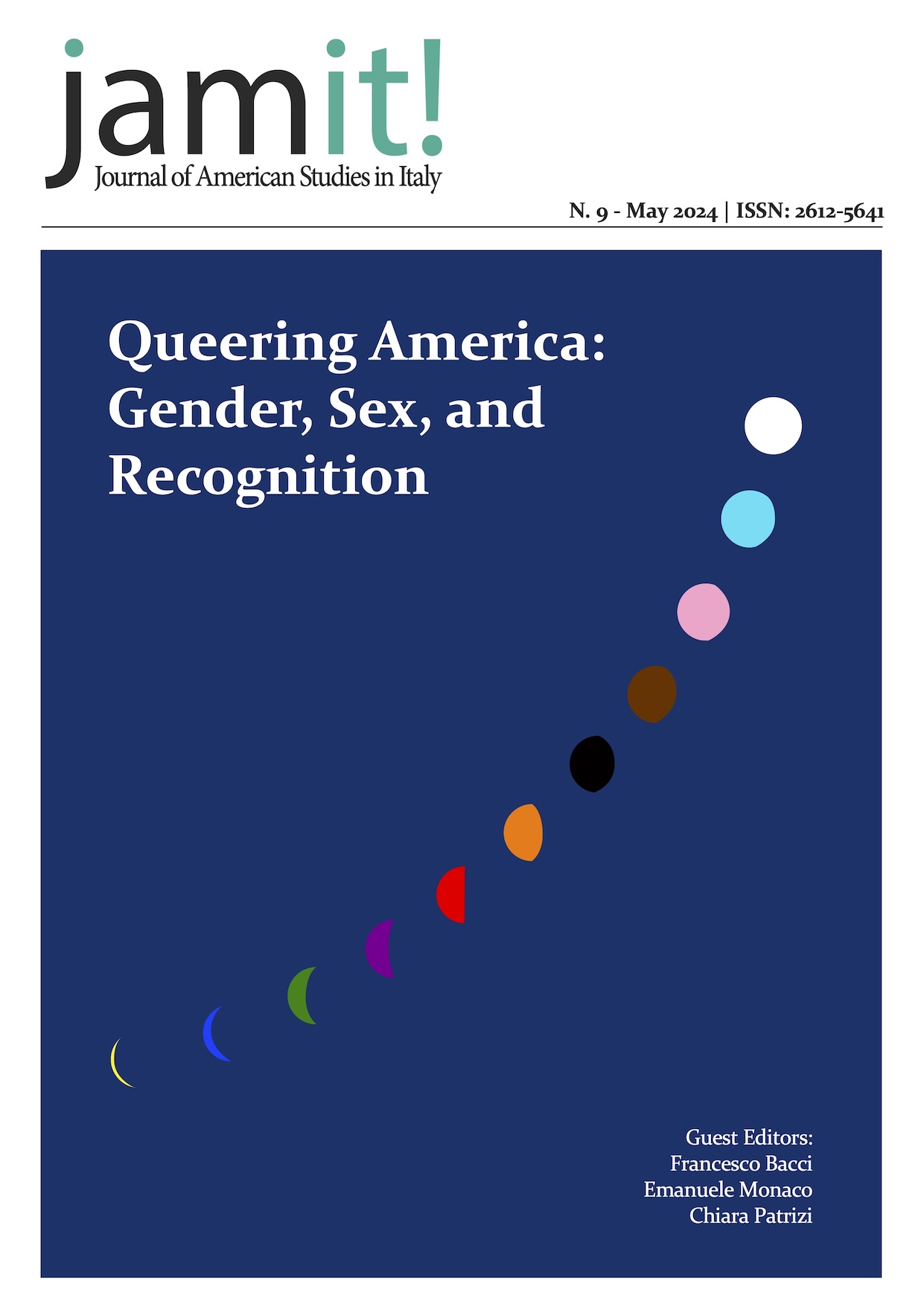(Re-)Narrating Transgender Pasts, Presents, and Futures in Casey Plett's Little Fish
DOI:
https://doi.org/10.13135/2612-5641/7686Parole chiave:
transgender literature, Casey Plett, queer temporality, de-subjugation, trans archivesAbstract
In Casey Plett’s novel Little Fish (2018), the protagonist Wendy faces multiple lifechanging events at the same time: After her grandmother passes away, she finds out that her Mennonite grandfather might have been a trans woman and grapples with the way her family has narrativized him and remembers him. In the midst of this journey, her friend Sophie dies by suicide and Wendy is left to piece together Sophie’s past, navigate a present of mourning, and imagine a future without her. Building on theories of queer and trans temporalities, Kit Heyam’s recent work on trans histories, Susan Stryker’s Foucauldian reading of trans as a subjugated archive, and Margaret Middleton’s concept of ‘gaydar as epistemology,’ this paper explores how cisnormative narrations of transness and transitioning hold trans subjectivities in a constant temporal bind and, in turn, how Little Fish interrogates this bind through a (re-)narration of transgender pasts, presents, and futures. The temporal bind within cisnormative temporalities and narrations of transness is rooted in medicalization and pathologization and configures trans identity as a temporary phase on a linear transitioning path from a traumatic childhood in the past to the ‘curing’ of a ‘wrong body’ in the future. Ultimately, this paper demonstrates that Little Fish is able to challenge the cisnormative narrative by desubjugating trans archives and utilizing specific, embodied knowledge of transness to come to an interpretation of the past that negates presupposed heterosexuality and cisnormativity, and instead opens the possibility for the complexity of queer and trans existence.
##submission.downloads##
Pubblicato
Fascicolo
Sezione
Licenza
Authors who publish with this journal agree to the following terms:
- Authors retain the copyright and full publishing rights for their submissions to the journal.
- Authors grant the journal right of first publication with the work simultaneously licensed under a Creative Commons Attribution-NonCommercial-NoDerivatives 4.0 International License that allows others to share unedited work for non-commercial purposes with an acknowledgement of the work's authorship and initial publication in this journal.
- Authors are able to enter into separate, additional contractual arrangements for the non-exclusive distribution of the journal's published version of the work (e.g., post it to an institutional repository or publish it in a book), with an acknowledgement of its initial publication in this journal.
- Authors are permitted and encouraged to post their work online (e.g., in institutional repositories or on their website) prior to and during the submission process, as it can lead to productive exchanges, as well as earlier and greater citation of published work (See The Effect of Open Access).




